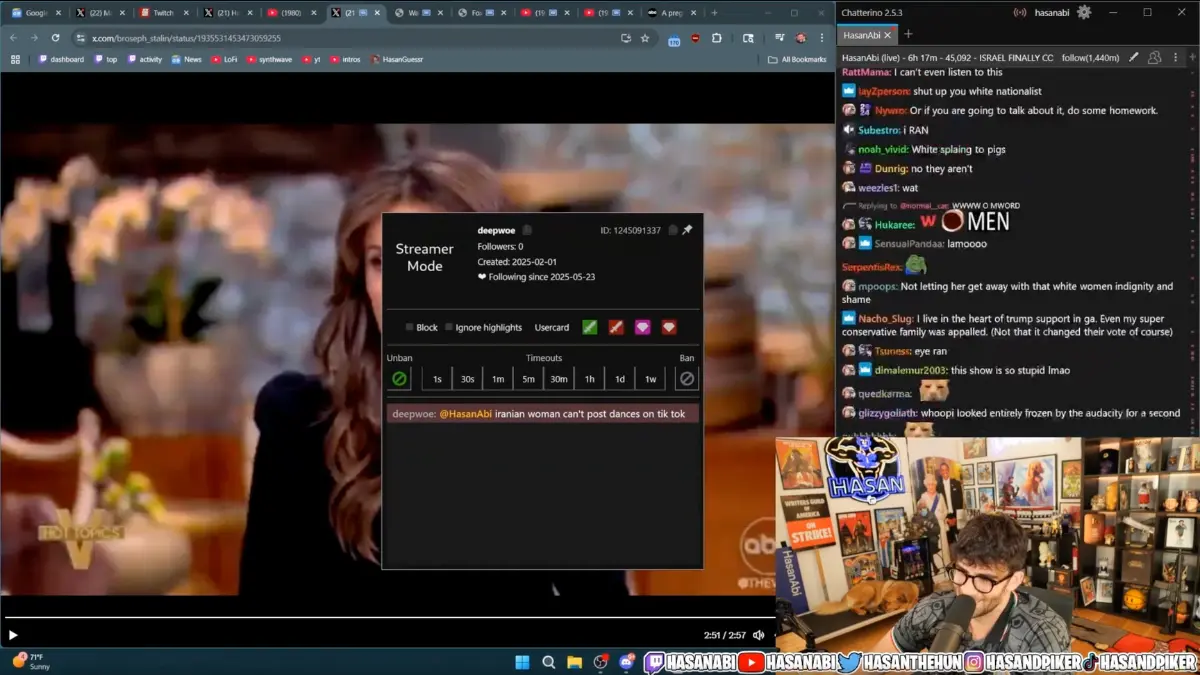During a recent livestream, Twitch personality Hasan Piker made controversial statements about Iranian women’s freedom to post dancing videos online, dismissing concerns about restrictions as exaggerated. The political commentator suggested that Iranian women can share dancing content without significant repercussions, a claim that conflicts with extensive documentation of legal and social restrictions in the country.
“Iranian women can post videos of themselves dancing,” Piker stated during his broadcast while reacting to a television segment discussing women’s rights in Iran. He further suggested that using dance videos as a measure of women’s liberty was inappropriate.
Multiple high-profile cases contradict Piker’s claims. In February 2023, a young couple received prison sentences exceeding 10 years for posting a viral video of themselves dancing at Tehran’s Azadi Square. Following the 2022 death of Mahsa Amini—who was detained for “improper hijab”—Iranian authorities have intensified crackdowns on women who challenge social restrictions.
Human Rights Watch, The Guardian, BBC, and other news outlets have consistently documented cases where Iranian women face arrest and prosecution specifically for dancing videos shared on social media platforms.
While enforcement can vary across urban and rural areas, and some Iranian women do engage in acts of digital defiance by anonymously posting such content, they do so at considerable personal risk. Many use VPNs to access blocked Western social media, adding another layer of complexity and danger.
The streaming star, known for his political commentary aimed at younger audiences, has previously been criticized for simplified takes on complex international issues. This latest incident shows the challenge content creators face when discussing nuanced geopolitical topics during livestreams.

